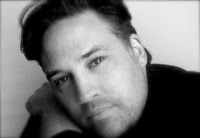
Julia Jarcho, recently profiled in TBA’s Playwrights Issue and PF Resident Playwright, deftly commands language in her upcoming play for the In The Rough (ITR) Reading Series. The Whole Tree (Electric), inspired by the story of Electra, explores a world like our own, though overshadowed by an apocalyptic prophecy. The play will first be shown at Stanford University on Monday April 28th, and then at the Magic Theatre the following night on Tuesday April 29th at 7:00pm.
Read More About Julia In The ITR
Go Back To Playwrights Foundation
In an exclusive interview Ms. Jarcho explained what engaged her about the original story of Electra:
PF: What was the genesis of The Whole Tree (Electric)?
JJ: I was reading Sophocles’ Electra and two things really struck me. First, everyone is constantly telling Electra to shut up. Even when Orestes and the tutor come back, it's like, "OK, good to see you too, but be quiet now so we can kill mom." It seems like her transgression isn’t loving her father too much, it’s talking too much--or somehow those are the same thing. So I thought that was interesting. And also, there’s a character in the play who’s named--a friend of Orestes--but who never says a word. So what’s the space that holds open? I try to work with both these things in my play, which is of course more about what it’s like to have this particular play in your brain--which we do pretty strongly, I think, for instance in pop psychology--than it is a "retelling" or anything.
PF: You’ve often directed your own work. Do you approach your own play differently when working on it as a director?
JJ: A play doesn’t exist on paper, at least for me. In terms of new work, I don’t really understand the traditional division of labor between "playwright" and “director”--it seems to come from a model in which the writer is already dead. That’s not to say I don’t like working with other directors--I think it’s like any other kind of collaboration, you can learn a lot, and when I do this I’m excited to see the piece go in directions it wouldn’t have otherwise. But the problem-solving part of the process doesn’t happen in the writing. The writing is an articulation of a problem.
PF: While still a teenager, you worked with the "auteur" writer/director Richard Maxwell as an actor. What was that experience like? How did it come about?
JJ: I was interning at a theater where he was working, and I really liked the pieces he showed there, and so I helped out with the box office on a show he did, and then I got to be in a couple of things. He works with non-actors, and I’m not an actor, so. It was really exciting and helpful. His confidence in the particular work he was doing, I mean the confidence that there was something to be achieved, and with a rigor and specificity that didn’t really need to be justified along the way--because the end product would justify it--I found that really impressive, and I try to be more like that in my work than I think I’d otherwise be inclined to. Not to put on blinders or anything, but just to “believe in myself,” as the saying goes. But also, Rich but also other people I met through working with him (Aaron Landsman, Tory Vazquez), really influenced my sense of what’s exciting in performance--it has to do with a certain honesty, a liberation from “character” and from a kind of preemptive insistence on meaning. Not that the meaning isn’t there, but performers--and the text—don’t need to insist on it. Because when they do, a lot gets foreclosed.
PF: You’re in the PhD program in Rhetoric as a at UC Berkeley. How does that influence your dramatic work? Is there a tension between work that is creative versus work that is highly analytical?
JJ: I think there’s more in common than there is in tension. The tension comes mostly from economics of time and energy. And I feel in academic work that there’s a lot more room to hide. Like any occupation, it has its own special language, and I think my writing likes to feed on special languages--although the academic one isn’t, certainly, the one I find most beautiful, and there’s a danger of anemia if that's your whole diet. But if my theater work is kind of nerdy, I don't think that’s because I'm in academia--if anything it works the other way.




